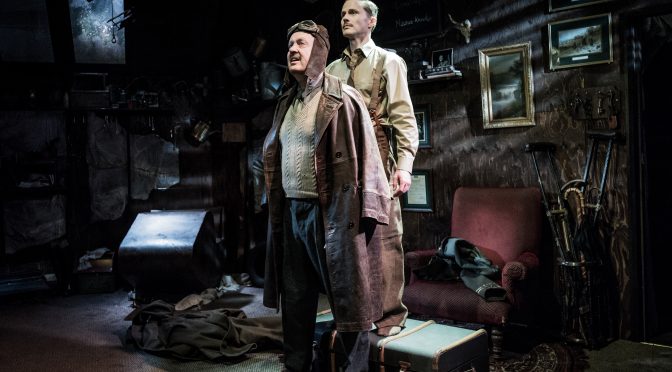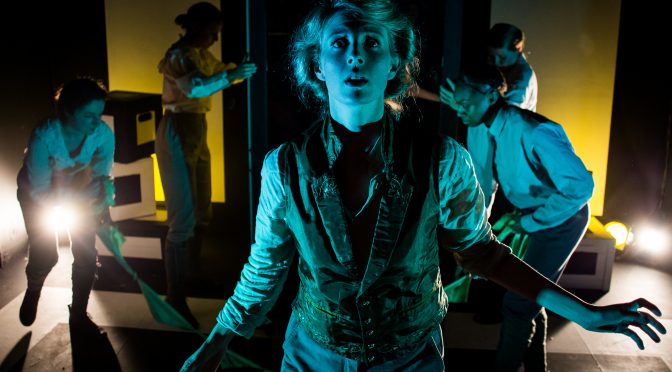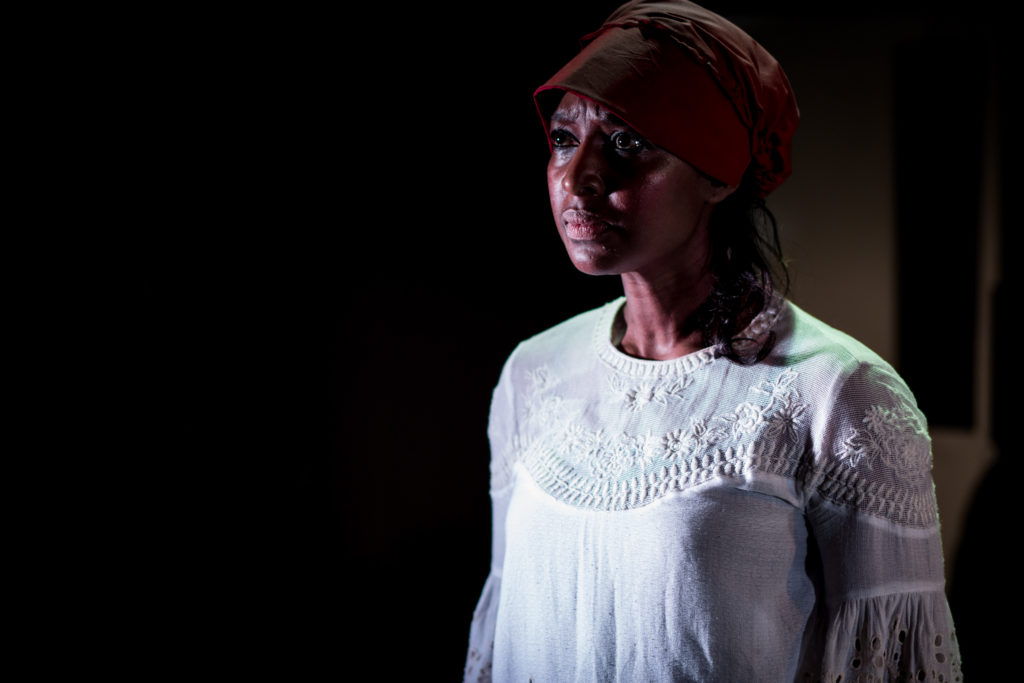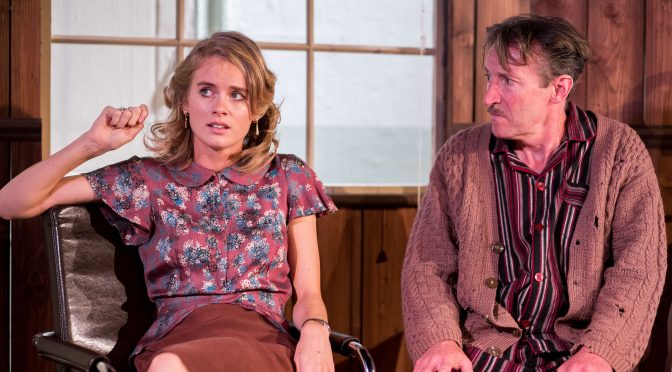This low-key play from John MacLachlan Gray and Eric Peterson tells the true story of a Canadian WWI pilot and makes for a surprisingly gentle commemoration in the Great War’s anniversary year. Our hero, Billy, is pleasingly unusual: an unwilling recruit, accident-prone yet “gifted” and achieving a record “score” for kills. For most of the play, he is shockingly callow. It’s really Charles Aitken’s commandingly affable performance throughout that makes him watchable. Aitken grafts like a real trooper and carries a heavy burden. From caddish bounder to troubled boozer (and doubling as a couple of female parts along with way), he forces energy into a flat script again and again.
Oliver Beamish joins as an older Billy. Director Jimmy Walters allies the roles well, with solid work throughout, but the Billy who looks back at his youth is wasted and simply wallows in nostalgia. It’s with a small number of cameos that Beamish can come into his own, injecting, possibly too much, humour into the story. The japes around Billy’s scrapes go on too long and are repetitive, with weak jokes. The rest of the time Beamish accompanies on the piano – this is a play with music – but sadly the refrains are poor and the lyrics awful.
The play doesn’t get serious until after the interval – fair enough – maybe that was Billy’s personal experience. But then we get more music… and it doesn’t improve in quality. Walters highlights the play’s most interesting features – the role of Britain’s colonies in the war and the idea that the motherland likes its heroes dead – but the play itself doesn’t explore either enough. Worse still, Bishop’s “bloodthirsty” battle lust, so honestly admitted, is left unexamined. The drama and the horror of war are insufficiently evoked. In one sense, this is a useful corrective aside from the more prevalent glory-or-guts narratives of conflict. But the thrill of the kill should lead to a chill in the theatre that is conspicuous by its absence.
Until 24 November 2018
Photo by Robert Workman




